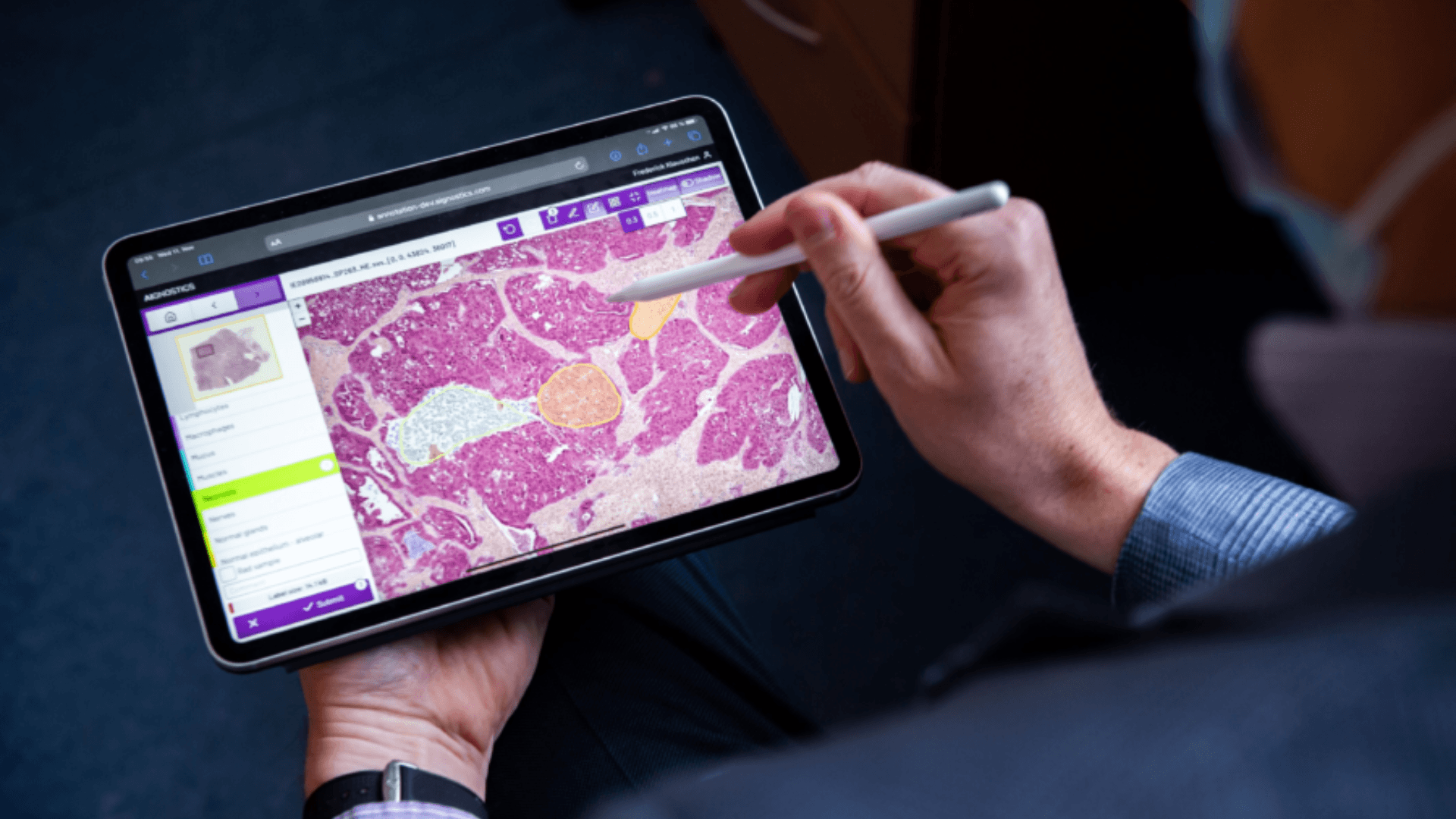While pathologists are outstanding at interpreting individual tissue samples qualitatively, deep analysis of large data sets is a challenge better suited for AI. Attempting to address this, Berlin-based biotech startup Aignostics focuses on building leading AI models for the detailed analysis of tissue samples and associated metadata for its blue-chip pharma and biotech clients. The startup has now raised €14 million in a Series A round to develop digital pathology solutions with Explainable AI for pharmaceutical research and diagnostics.
The oversubscribed round was led by Wellington Partners and backed by existing investors Boehringer Ingelheim Venture Fund (BIVF), VC Fonds Technologie managed by IBB Ventures and High-Tech Gründerfonds (HTGF). CARMA Fund, initiated by Ascenion, also participated as a new investor. The new round will drive the company’s expansion the U.S. and further advance the AI platform.
The spin-off from Charité – Universitätsmedizin Berlin, offers AI models which go beyond current off-the-shelf solutions and established approaches. According to the company, the models cover key tissue staining technologies to enable the acceleration of pre-clinical and translational research. This in turn would improve understanding of disease biology, mode of action, or novel biomarkers and drug response characteristics, which are difficult to assess with traditional approaches under a microscope.
Talking about his plans post the funding, Viktor Matyas, CEO and co-founder of Aignostics said: “With this new round of funding, we will put a stronger focus on the U.S. market, in which we have been active since the beginning of this year. By accelerating our investments into our platform, we will be able to offer a Good Clinical Practice (GCP) compliant development and analysis process starting early 2023, and we plan to have first AI models in use in early-stage clinical trials soon thereafter.”
Dr. Maximilian Alber, CTO and co-founder added: “Our patented Explainable AI technology reverse engineers traditional black-box AI models and reveals features that its decisions and predictions are based on. This helps discover novel biomarkers or drug response characteristics. We have also developed a proprietary approach for the automated training of cell-level AI that does not rely on manual annotations by pathologists.”
Dr. Johannes Fischer, principal at Wellington Partners added: “What makes Aignostics unique is not just its technology, but also its comprehensive access to key data modalities and pathologists, who are closely involved in the development process at all times. This combination allows the platform to rapidly build bespoke pre-trained AI models that are highly impactful when used by its clients on their own research and clinical trial data.”



Would you like to write the first comment?
Login to post comments